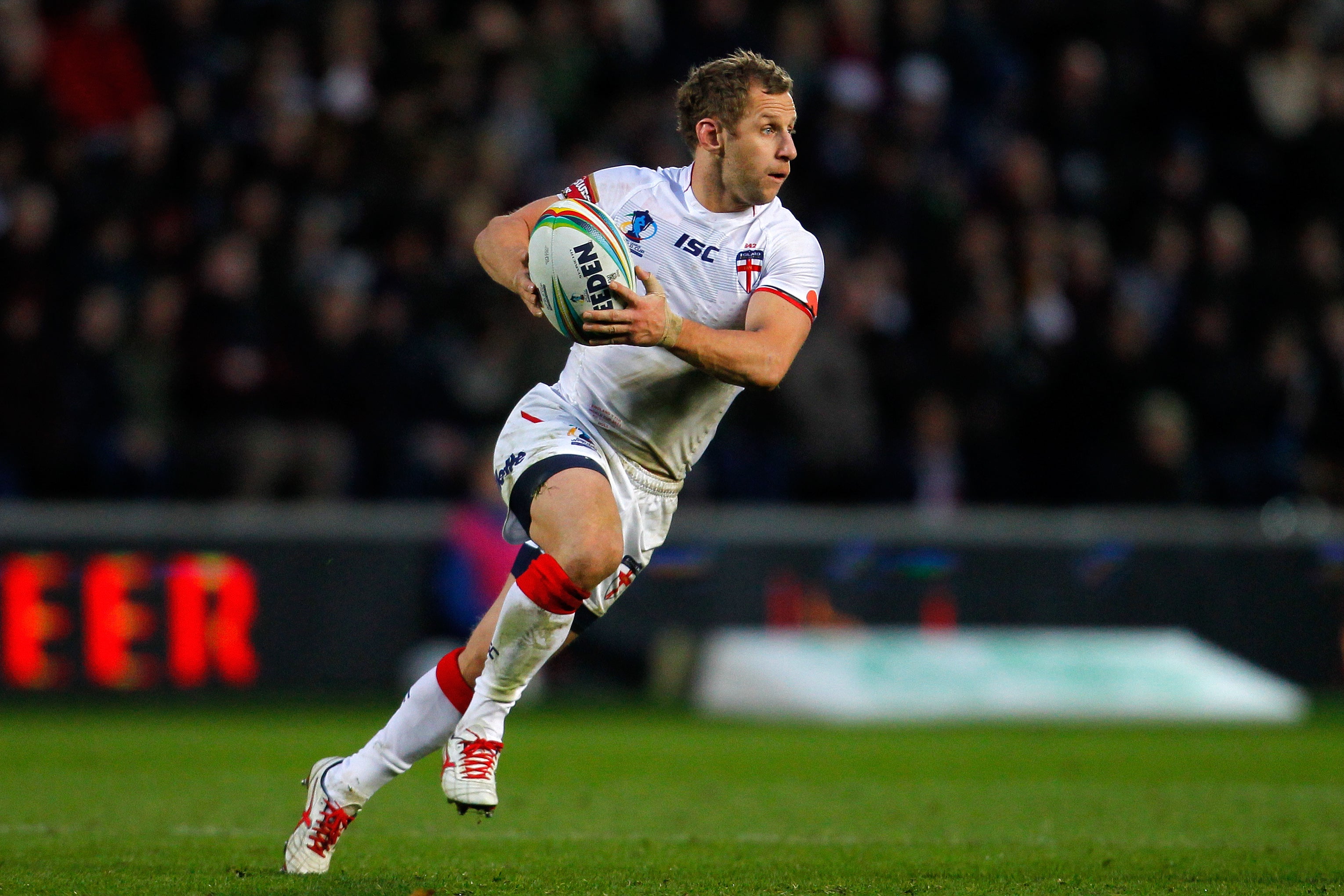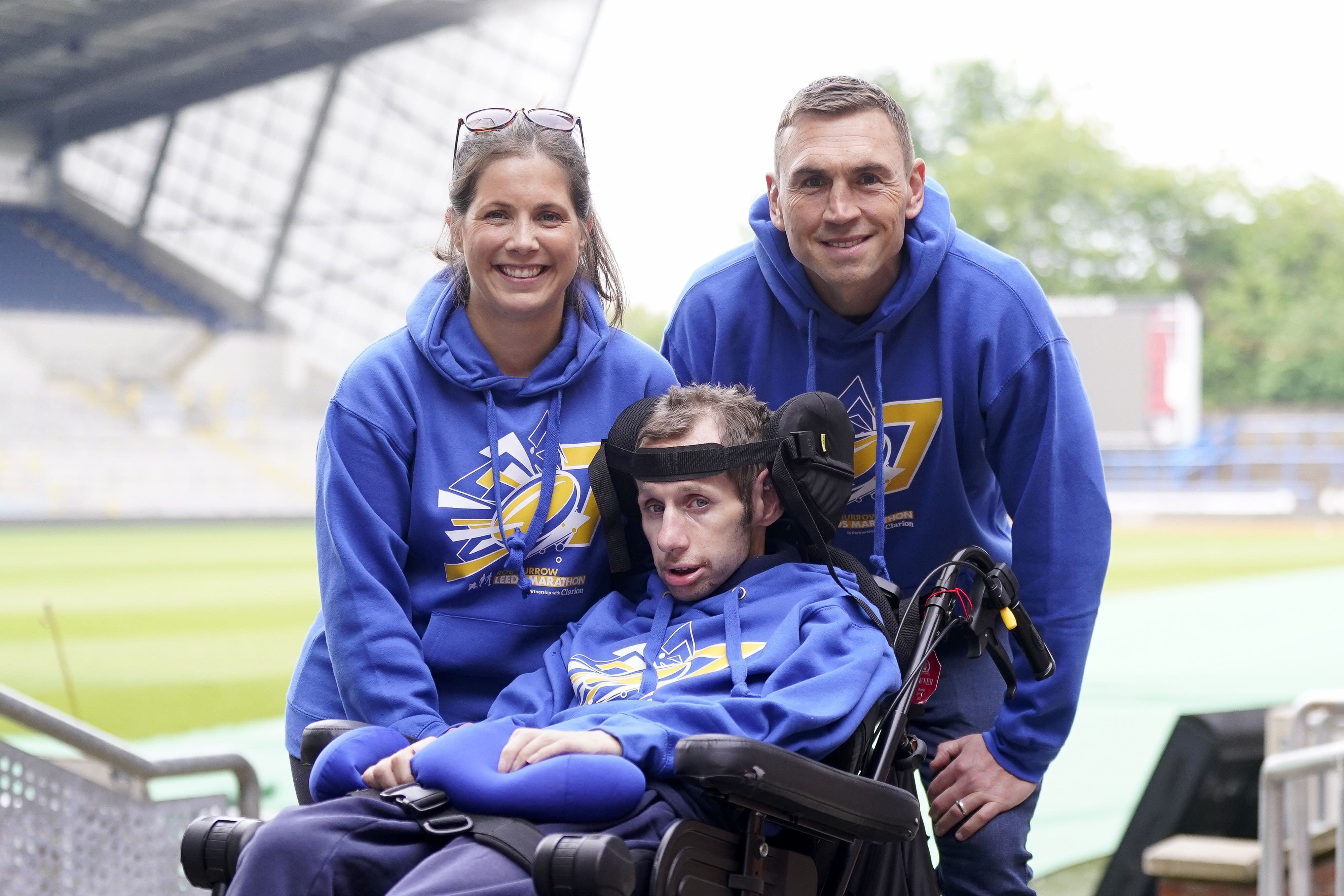Rob Burrow met MND with a defiant smile and carried on living
The Leeds Rhinos legend ignored conventional wisdom about what a rugby player should look like, and he took that unyielding mentality into his inspiring five-year journey living with motor neurone disease

Your support helps us to tell the story
From reproductive rights to climate change to Big Tech, The Independent is on the ground when the story is developing. Whether it's investigating the financials of Elon Musk's pro-Trump PAC or producing our latest documentary, 'The A Word', which shines a light on the American women fighting for reproductive rights, we know how important it is to parse out the facts from the messaging.
At such a critical moment in US history, we need reporters on the ground. Your donation allows us to keep sending journalists to speak to both sides of the story.
The Independent is trusted by Americans across the entire political spectrum. And unlike many other quality news outlets, we choose not to lock Americans out of our reporting and analysis with paywalls. We believe quality journalism should be available to everyone, paid for by those who can afford it.
Your support makes all the difference.To even a passing rugby league fan, the sight of watching Rob Burrow lives long in the memory. There was a certain thrill in seeing the smallest man on the pitch toy with his opponents, there one moment and gone the next, leaving a trail of 6ft-something bruisers with their face in the grass.
His glittering rugby career was gilded by silverware, an entire bookcase of team trophies and individual awards, each one a symbol of defiance, confounding conventional wisdom about what a rugby star should look like. And so, after that terrible winter day in 2019 when Burrow was diagnosed with motor neurone disease (MND) and given 18 months to live, perhaps his response should have been no surprise.
Burrow showed how MND could be confronted, embraced with a humility and grace it does not deserve. MND is a thief raiding the body, room by room, possession by possession until there’s nothing left. Yet Burrow met it at the door with a disarming smile and insisted it took its time. “I have too many reasons to live,” he said. “I’m not giving in til my last breath.”
He squeezed out nearly five years of life, packed full of love and legacy, and died on Sunday aged 41. You will read about how Burrow finally lost his battle with MND but that isn’t really true, and he never described it in those terms. He didn’t lose to MND, he lived with it.

“The worst thing for me is people pitying me,” he said soon after the diagnosis. “I know it’s going to come but I want to be as normal as ever. While I am able-bodied and feel fit and strong and healthy, I want to do normal things and not be treated any differently.” He did just that, and a month later he played the final five minutes of a benefit match at Headingley in front of a sell-out crowd of almost 20,000, most of whom had tears in their eyes.
In the BBC documentary following his family’s journey, Burrow’s humour was ever-present, even when discussing palliative care. He didn’t want to talk about death, not yet anyway, so when his consultant suggested making a plan for his fading health, and compared it to how he might prepare for a rugby match, he joked: “I would not plan for six games away.”
By then he was reliant on his eye-gaze machine to slowly construct sentences, which played in his voice after he was recorded reading a book soon after his diagnosis. The documentary laid bare the harsh reality of living with MND, the way it attacked the muscles, the toll it demanded from those around him, especially his parents and his inspirational wife Lindsey, who cared for her husband while raising their children and working.
Burrow thanked her endlessly. “I had no idea how my family would react, the more was taken away from me,” he said. “It seems they have become a beacon of hope for other families in the same situation.”

It was easy to see how Burrow’s positivity beamed through his three young children. Their lives will be peppered by good-meaning folk reminding them of their loss, but perhaps they might find a crumb of comfort when a stranger in the street tells them their dad was a great rugby player and an even better man.
His impact on the MND community is immeasurable, though it will soon be tangible when the Rob Burrow Centre for MND is eventually opened in Leeds (building work began on Monday after the fundraising page achieved 80 per cent of its £6.8m target). “Lots of people were once ashamed of MND,” said Kevin Sinfield, Burrow’s great friend who raised more than £5m for MND research running marathons and ultra-marathons. “But now that’s changed, and that’s down to Rob, and that’s an incredible thing.”
Both in rugby and in retirement, Burrow made the very most out of what he had. He found what he loved – family, rugby, Leeds – and he lived for them. And ultimately, this might be Burrow’s greatest lesson of all: that life is short, sometimes cruelly so, so relish it, and the people that we love.
Join our commenting forum
Join thought-provoking conversations, follow other Independent readers and see their replies
Comments